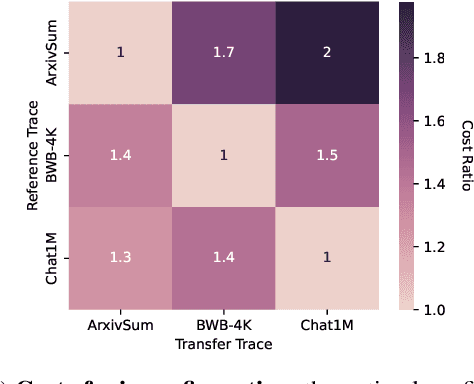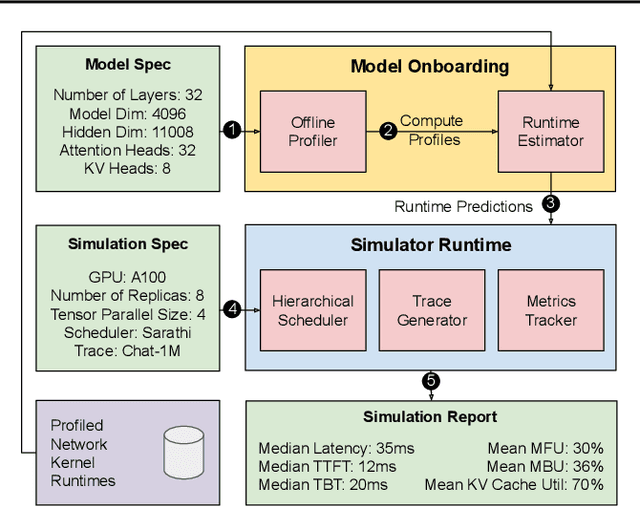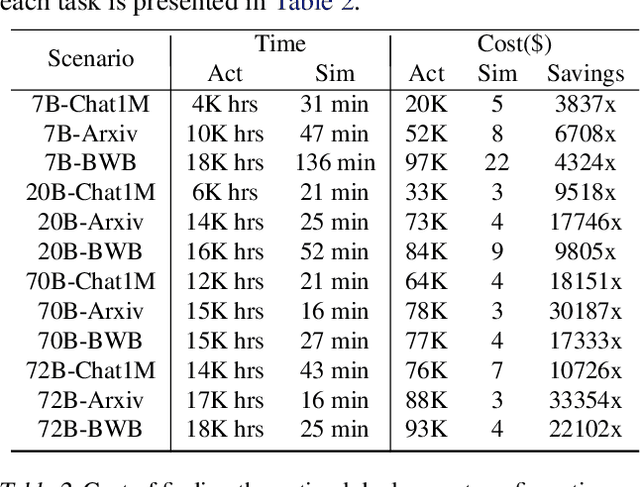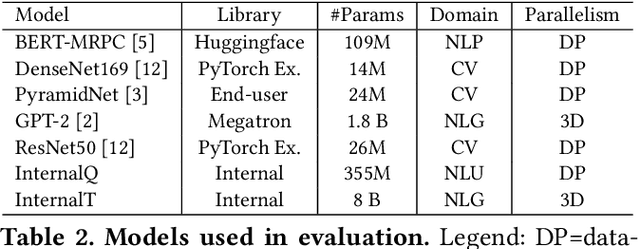Bhargav Gulavani
Microsoft
Vidur: A Large-Scale Simulation Framework For LLM Inference
May 08, 2024



Abstract:Optimizing the deployment of Large language models (LLMs) is expensive today since it requires experimentally running an application workload against an LLM implementation while exploring large configuration space formed by system knobs such as parallelization strategies, batching techniques, and scheduling policies. To address this challenge, we present Vidur - a large-scale, high-fidelity, easily-extensible simulation framework for LLM inference performance. Vidur models the performance of LLM operators using a combination of experimental profiling and predictive modeling, and evaluates the end-to-end inference performance for different workloads by estimating several metrics of interest such as latency and throughput. We validate the fidelity of Vidur on several LLMs and show that it estimates inference latency with less than 9% error across the range. Further, we present Vidur-Search, a configuration search tool that helps optimize LLM deployment. Vidur-Search uses Vidur to automatically identify the most cost-effective deployment configuration that meets application performance constraints. For example, Vidur-Search finds the best deployment configuration for LLaMA2-70B in one hour on a CPU machine, in contrast to a deployment-based exploration which would require 42K GPU hours - costing ~218K dollars. Source code for Vidur is available at https://github.com/microsoft/vidur.
Singularity: Planet-Scale, Preemptive and Elastic Scheduling of AI Workloads
Feb 21, 2022



Abstract:Lowering costs by driving high utilization across deep learning workloads is a crucial lever for cloud providers. We present Singularity, Microsoft's globally distributed scheduling service for highly-efficient and reliable execution of deep learning training and inference workloads. At the heart of Singularity is a novel, workload-aware scheduler that can transparently preempt and elastically scale deep learning workloads to drive high utilization without impacting their correctness or performance, across a global fleet of AI accelerators (e.g., GPUs, FPGAs). All jobs in Singularity are preemptable, migratable, and dynamically resizable (elastic) by default: a live job can be dynamically and transparently (a) preempted and migrated to a different set of nodes, cluster, data center or a region and resumed exactly from the point where the execution was preempted, and (b) resized (i.e., elastically scaled-up/down) on a varying set of accelerators of a given type. Our mechanisms are transparent in that they do not require the user to make any changes to their code or require using any custom libraries that may limit flexibility. Additionally, our approach significantly improves the reliability of deep learning workloads. We show that the resulting efficiency and reliability gains with Singularity are achieved with negligible impact on the steady-state performance. Finally, our design approach is agnostic of DNN architectures and handles a variety of parallelism strategies (e.g., data/pipeline/model parallelism).
 Add to Chrome
Add to Chrome Add to Firefox
Add to Firefox Add to Edge
Add to Edge